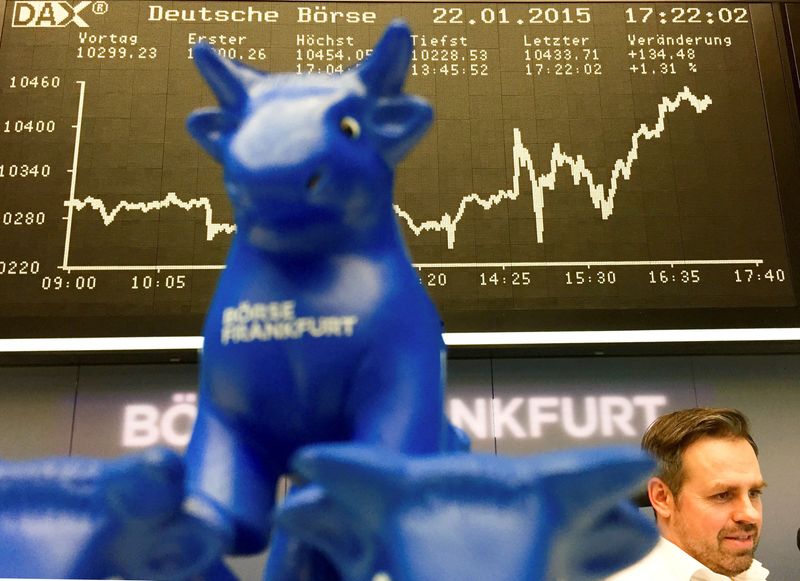This post was originally published on this site

Investing.com – European stock markets traded in a mixed fashion Tuesday following the release of key economic activity data, but the overall tone remains one of caution given concerns of red-hot inflation, soaring gas prices and slowing growth.
By 03:55 ET (07:55 GMT), the DAX in Germany traded 0.4% higher, the CAC 40 in France rose 0.2%, while U.K.’s FTSE 100 dropped 0.2%.
Data released earlier Tuesday showed Europe’s two largest economies both probably contracted in August as the result of the region’s energy crisis.
S&P’s composite purchasing managers indices for Germany and France fell to 47.6 and 49.8, respectively, both below the 50 level that typically separates growth from contraction. That was a 26-month low for Germany and an 18-month low for France, S&P said on Tuesday.
There was some good news, however, as the key German manufacturing sector held up better than expected, rising to 49.8 from 49.3 and defying fears of a further slowdown, thanks to an improvement in supply chain problems and a slight easing of some input price pressures.
Still, overall sentiment remains weak on the back of inflation nearing double digits, the European Central Bank starting to tighten monetary policy while winter with looming energy shortages is fast approaching.
Benchmark gas prices in the European Union soared once more overnight as damage to a key pipeline system running oil from Kazakhstan through Russia and into Europe disrupted supply.
This comes ahead of Russian energy giant Gazprom halting supply through the key Nord Stream pipeline at the end of the month for unscheduled maintenance works.
The Bundesbank said in its monthly report on Monday that a recession in Germany, the Eurozone’s biggest economy, is increasingly likely.
In corporate news, BT Group (LON:BT) stock rose 2.5% after the telecoms group announced that French billionaire Patrick Drahi will be allowed by the British government to keep his stake in the company.
Oil prices rose Tuesday after Saudi Arabia’s Oil Minister Prince Abdulaziz bin Salman said late Monday that the Organization of the Petroleum Exporting Countries stands ready to reduce production to correct the recent oil price fall, stating that the futures market has ignored extremely tight physical crude supply.
The cartel has reversed all of the output cuts made during the pandemic, during a period of extreme volatility since Russia’s invasion of Ukraine disrupted the usual flows.
By 04:05 ET, U.S. crude futures traded 1.1% higher at $91.28 a barrel, while the Brent contract rose 0.7% to $97.14. Both benchmarks are down around 5% over the last month, having both traded over $100 a barrel.
Additionally, gold futures rose 0.2% to $1,751.45/oz, while EUR/USD traded 0.1% lower at 0.9927.


